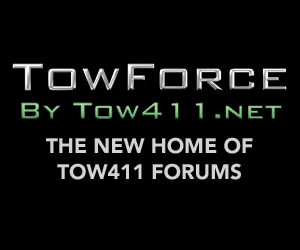
As a follow-up to last issue’s article about negative behavior, complaining, and other detrimental activities your employees may be engaging in, I want to go over several approaches to help you correct this costly cycle of action before it cripples your business.
The first and foremost consideration I ask you to realize is that no matter how good an operator or dispatcher is, and how much you’ve invested in them, if they’re complaining, whining, bringing other people down, gossiping, and the biggest one – showing a bad attitude at your customer’s locations….they’re costing you much more than you’ve already spent. That’s one of those unseen situations that may not be directly apparent, but I promise you you’re losing employees because of people like that, and your customers see the attitudes and actions and form opinions about your business.
There’s a quote floating around that I truly love, and it applies here:
Nothing will kill a great employee faster than watching you tolerate a bad one.
Think about that for a moment. In a company I’m familiar with, there’s a young man who lies continually, snitches on people over petty things, and isn’t a good driver. He’s taken out a mailbox or two, damaged another driver’s truck, gotten stuck when he should have planned better, requiring a heavy to go out and rescue him…and his attitude is atrocious. Even though he’s young, he’s a know-it-all, and is openly disrespectful to older, more experienced drivers.
The rumors and innuendo are that you can’t get fired from the company. In recent history, there’s no track record of anyone getting fired for seemingly major offenses. Newer drivers, those hired in the past couple of years, haven’t seen anyone terminated for cause, and this young guy skates by with his bad attitude, smart mouth, and poor driving skills.
What possible motivation are you giving the rest of the crew to behave and operate professionally?

This guy regularly gets away with it, so why should I work so hard and be careful? Damaged a car? No biggie, the boss will cover it and I won’t get fired.
Cursed out the guy with 20 years in the field? No biggie, we’ll get called into the “principal’s office, the issue will be minimalized, and the older guy will just have to live with it.
You reap what you sew, and what you reap is a group of guys who grumble and perform at a mediocre level at best – the guys who screw up aren’t being dealt with and the guys who do great aren’t being rewarded. Congratulations! You have a below-average crew.
Complaining – People whine. Tow drivers and truckers whine. It happens.
There’s a couple of jokes that fit in here. What’s the difference between a tow driver and a puppy? A puppy quits whining and crying after 8-10 weeks. What do you have with 40 tow drivers in your basement? A whine cellar.
What you do with complaining is up to you. If you hear it, shut it down. The main problem with someone complaining about how Joe get fewer calls than me, or I had to do more than Joe…is that it creates a whining contest almost every time. Each drive may feel the need to compare their woes and professed atrocities, and it kills the attitude of just about everyone, likely for the rest of the day or even the week.
A group announcement may work well at your next safety meeting or training session. It’s not a matter of being an authoritarian or a dictator, and those words may come up as the complaining continues but explaining the flow of activity that extends from these public sessions should make sense to your people. Explain what it costs in attitudes and productivity. If they feel slighted over something, explain that you or your manager are the only ones who need to hear it. Complaining to Bob about Joe does nothing for the perceived problem or the employee – Bob can’t help them fix a problem with Joe, but you can.
Negative attitude – there are millions of quotes and phrases that center around the notion that attitude is everything. Attitude goes hand in hand with complaining, gossiping, and other negative behavior, or it reflects professionalism and pride. Not everyone can have a perfect day every day but teach your people to check their attitudes at the door, especially when dealing with your customers.
You may ask them this: Are you having a bad day, or did you have a bad five minutes that you’re milking all day?
Pettiness – This attribute is directly associated with the amount of emotional maturity a person has. Goes back to the argument or complaint that Joe got more calls than me, or I worked harder than Joe. Grow up. Be an adult. This person is an adult working for a company, not a child in elementary school. This is a situation that only some tough love can fix.
The know-it-all – This person damages your company in significant ways. They minimalize other’s qualifications and experience to make themselves feel better. It’s a form of bullying, and if you put up with it, you’re an accomplice. Pull the person into a closed-door meeting and explain to them what they’re doing, since it’s most likely they don’t see it. The know-it-all can easily cost you some employees as they search for another company where they don’t feel dogged all the time or made to feel like idiots. No one wants to feel stupid, and that’s the hidden agenda and goal of the know-it-all – to make others look stupid so they can look smart.
The one-upper – In the complaining scenario, or the “shooting the breeze” sessions, this person is always there to make others feel insignificant and themselves look cool or smart. Limit the amount of downtime for your crew by assigning busy work and break up these unofficial meetings where the one-upper is the center of attention – and you’ll limit their effectiveness. Also works for complaining sessions.
Not my job – It depends on your pay structure and the way you outline a person’s responsibilities, but some folks just like to set unrealistic boundaries around themselves to avoid doing anything extra or going the extra mile to help the company or a fellow employee. You must ask yourself if it’s worth it to keep someone who always blurts out, “It’s not my job,” and does the bare minimum to get by. Sounds a lot like milking the company clock to me, and that costs you money.
The interrupter and the whiner mentioned in last issue’s article are handled just like the complainer and know-it-all. Limit the amount of time they can make an impression on other employees. I jokingly told one guy that if he wanted to whine and complain, he should go into the bathroom and complain into the mirror so he’s not trashing everyone else’s day. His feelings got hurt, but he got over it – I made sure to do it in a group setting so others could help enforce the idea.
Most of all, it’s about establishing rules and expectations. If you don’t have regular meetings and discuss these issues, along with other day-to-day problems and solutions, you‘ll find yourself always putting out fires instead of practicing fire prevention.








